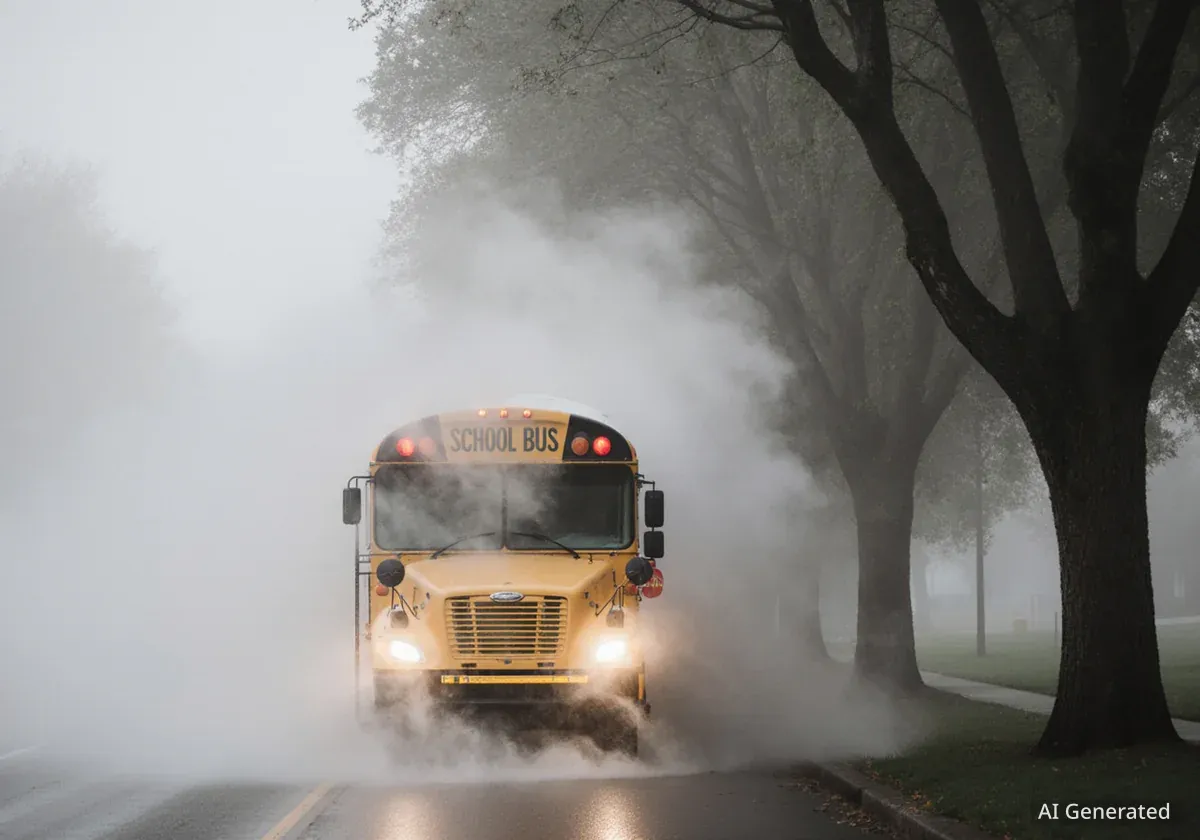The Loudoun County School Board is reviewing a proposed policy that would prevent the county's two public charter schools from receiving funds for building repairs and upgrades through the school division's Capital Improvement Program. The change, discussed at a September 9 meeting, has raised concerns about its potential impact on existing agreements with Hillsboro Charter Academy and Middleburg Community Charter School.
If approved, the policy revision could shift the full financial responsibility for all facility maintenance, repairs, and major capital projects to the charter schools themselves. This has prompted debate among board members and a strong reaction from charter school leaders, who argue it contradicts prior commitments and threatens the viability of their aging facilities.
Key Takeaways
- The Loudoun County School Board is considering a policy change to exclude charter schools from its Capital Improvement Program (CIP).
- The policy would make charter schools solely responsible for all building maintenance, repairs, and upgrades.
- Existing charter schools, Hillsboro Charter Academy and Middleburg Community Charter School, could be affected retroactively.
- Charter school leaders argue the change violates current agreements and could lead to legal challenges.
- The proposal will be presented as an action item at the School Board's September 30 meeting.
Proposed Changes to Policy 5410
The Loudoun County School Board is evaluating significant revisions to Policy 5410 as part of its standard five-year review process. The policy, currently titled “Charter Schools,” would be renamed “Establishment of Charter Schools” to reflect a more stringent focus on the requirements for new applicants.
The draft policy introduces extensive new requirements for prospective charter schools. Applicants would need to provide detailed information about their facilities, including safety plans, record storage solutions, and proof of compliance with state and federal laws like the Americans with Disabilities Act (ADA). The proposal also mandates that charter schools submit copies of annual facility inspections to the School Board.
Exclusion from Capital Improvement Program
The most debated change directly addresses funding for school buildings. The draft states that charter schools “will not be included in the School Board’s Capital Improvement Program for current or future capital improvements.”
Furthermore, the revised policy specifies that Loudoun County Public Schools (LCPS) would not be liable for the “conditions, safety, and/or ADA compliance for the facility or campus.” This places the full burden of “all capital repairs and improvements” and “maintenance and repairs” on the charter schools.
What is the Capital Improvement Program?
The Capital Improvement Program (CIP) is a long-term plan used by school districts to fund major construction projects, renovations, and significant repairs for school facilities. Being excluded from the CIP means an institution would not receive district funds for projects like roof replacements, HVAC system upgrades, or new building additions.
Debate Over Existing Agreements
A central point of contention is whether the new policy would apply to the county's two existing charter schools, Hillsboro Charter Academy (HCA) and Middleburg Community Charter School (MCCS), or only to new schools established in the future.
During the September 9 meeting, board member Lauren Shernoff (Leesburg) questioned the policy's retroactive application. She noted that HCA has historically been allowed to request projects for inclusion in the CIP. Wesley Allen, the division's general counsel, confirmed that the board would need to decide how to interpret the policy's scope if it passes.
Current Funding Status
The current FY 2026-FY 2031 CIP includes a category for charter schools but has no specific projects funded. It notes that Hillsboro Charter Academy has requested $18-$20 million in improvements, including a new gym, classrooms, and a STEAM lab. These projects were not programmed, pending School Board direction.
Shernoff highlighted that HCA's current charter renewal implies the school can request CIP funding. “If the new policy is adopted, it might be in tension with the charter,” she stated, emphasizing the need for clarity.
“It is absolutely necessary that we clarify [the meaning of the revised policy],” Shernoff said, later adding her intent to introduce an amendment “to create that clarity.”
Charter Schools Respond to Proposed Changes
Leaders from both charter schools have voiced strong opposition to the proposed policy, arguing it undermines their ability to maintain their historic, county-owned buildings and breaks previous promises.
Hillsboro Charter Academy's Position
Joe Luppino-Esposito, Vice President of the HCA Board, expressed frustration with the timing and nature of the proposal, which comes just 14 months after the school signed its latest charter renewal.
“To see this now... where they’re just going to say, ‘well, we know we agreed to this, but now, by policy, we’re essentially going to nullify your contract.’ I have a real problem with it,” Luppino-Esposito said. He added, “They’re just going back on the promise they made just over a year ago.”
Luppino-Esposito also contested the division's $18-20 million cost estimate for requested improvements, suggesting LCPS figures are often inflated. He stressed that the requested renovations for their building, which is over 50 years old, are necessary and not extravagant.
He confirmed that HCA is prepared to explore legal action if the policy passes and is applied retroactively. “If they do decide to do this, we’re gonna have to look at our legal options,” he said. “We don’t appreciate it, and we’re gonna fight it.”
Middleburg Community Charter School's Concerns
Jeff Morse, vice chair of the MCCS board and a former Loudoun County School Board chair, pointed out the challenges of maintaining his school’s building, which is over 100 years old.
“As they age, facilities will always require capital improvements,” Morse explained. “This would make MCCS and HCA the only two public educational facilities in the county not supported in the Capital Improvement Program.”
He clarified that the schools are not asking for extras, but for essential funding. “It is not feasible to expect the charter schools to pay for structural maintenance of an LCPS-owned facility. Our schools are not asking for CIP funded extras or upgrades, simply sufficient funding to keep the schools functional, the teachers focused on education and the children safely learning.”
Divided Opinions on the School Board
The proposed policy has revealed differing views among School Board members regarding the county's financial obligations to its charter schools.
Board member Kari LaBell (Catoctin) sided with the charter schools, stating, “They were promised... that they would be considered when they’re needing capital improvements on their schools.”
LaBell framed the issue as a matter of responsibility for all public school students in the county.
“These are Loudoun County students being taught by Loudoun County staff on a property owned by Loudoun County but rented to the charter school. So, why are we not taking responsibility for it?”
Conversely, board member Sumera Rashid (Little River) suggested the change should not be a surprise. She argued the revisions were “not new information” and that the charter school facilities were leased on an “as-is” basis.
The policy is scheduled for a final vote at the School Board's meeting on September 30, where it will be considered as an action item.





